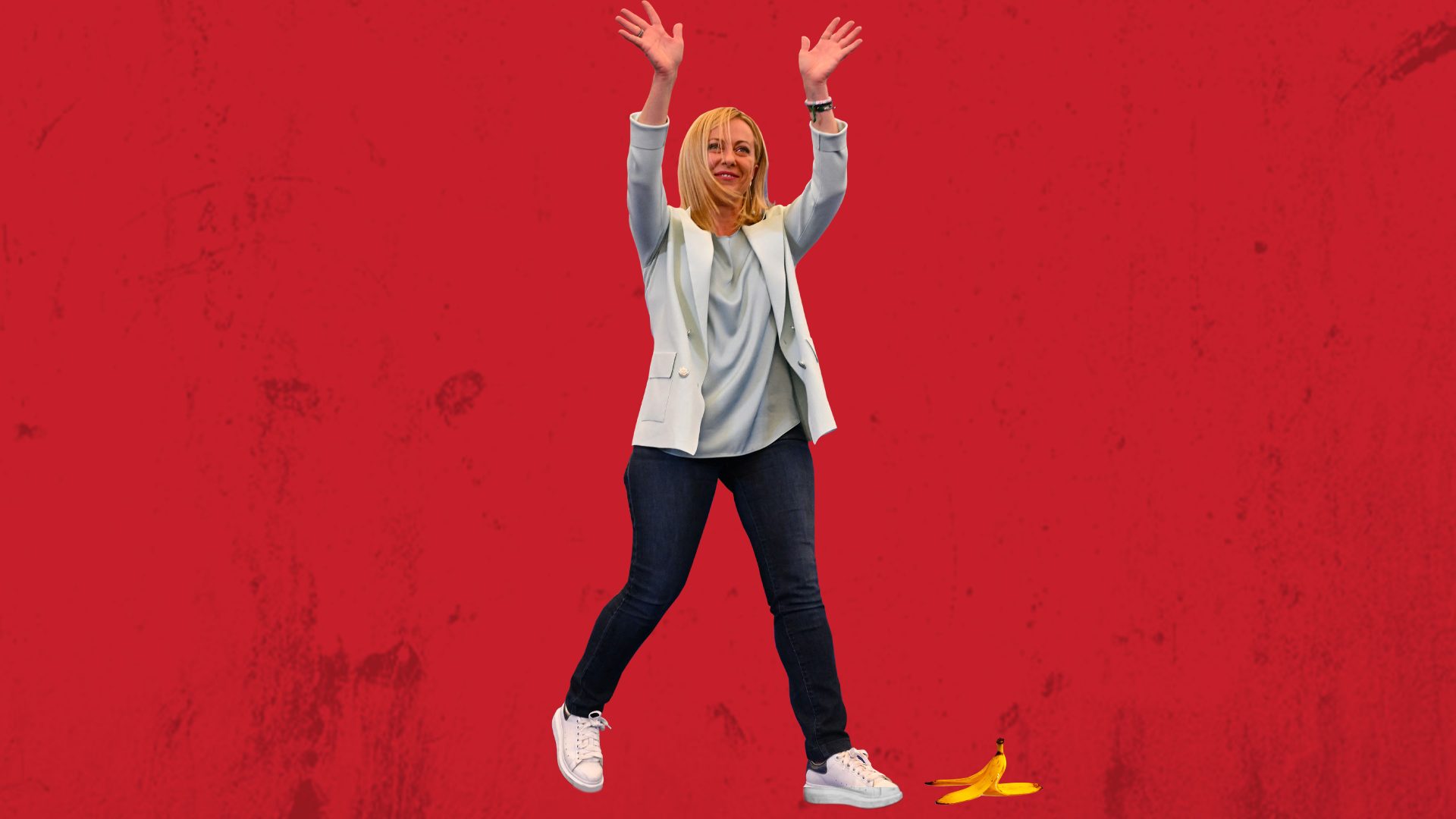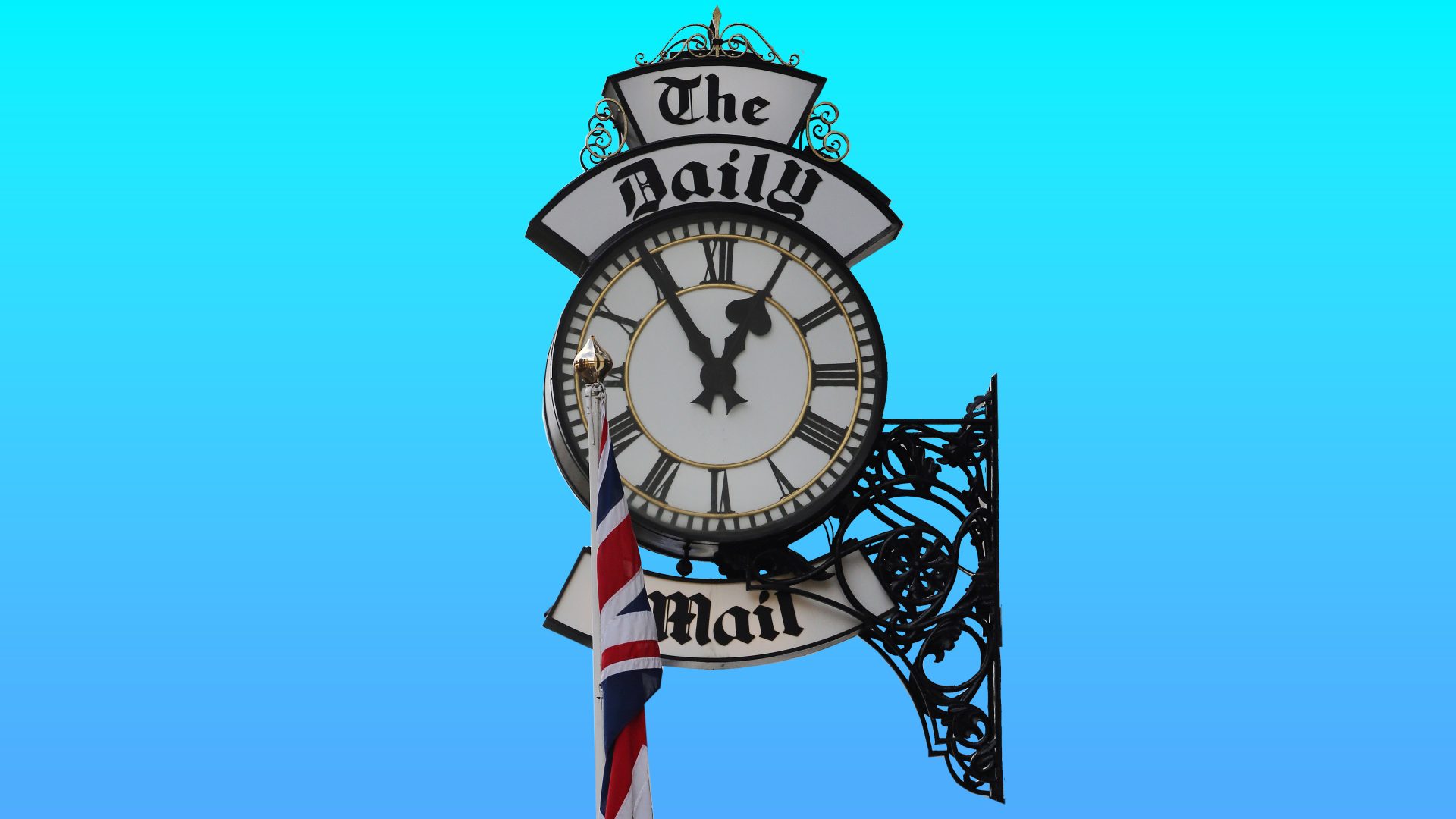I was at a friend’s house high in the Sabine Hills and on the horizon I could see the dome of St Peter’s Basilica in Rome. We sat drinking coffee in the early autumn sunshine in the garden, surrounded by four generations of his family, along with other friends and neighbours. It was a scene that could hardly be more Italian. But he was pessimistic, even fatalistic about Italy’s future. Italy has just elected Giorgia Meloni, a hard-right prime minister, who invokes uncomfortable memories of Italy’s political past. But he told me that in power Meloni, like all populists – and despite her sudden rise and all of the media attention, both in Italy and around the world – will fail to deliver on her promises.
Her support has risen very quickly from nowhere, he explained, and once disillusion sets in, it can fade away just as quickly. He used a simile to describe Italian politics. It’s like a river flowing very strongly along its course, he explained. Once in a while a flow of water diverts to one side or the other, but sooner or later it is drawn back into the mainstream.
That may be so. But now, Italians are worried. I’m worried, too. And not just about the new, hard-right government. At the local supermarket there is a stack of newly arrived wood pellets, a type of fuel made from compressed sawdust. In the Lazio region where I live, they are a big deal. People use pellet-burning stoves to power their central heating.
The season is fast approaching when they’ll start buying fuel again and there’s a shock in store. Back in April, a 15kg bag cost less than €6 (£5.34) – today the same bag costs €12. Gas, electricity, and food have all become more expensive, but this abrupt doubling of the price of something so essential has rammed the message home. People are worried about their future. For businesses that just about managed to survive the pandemic, this rise in living costs could be a death blow.
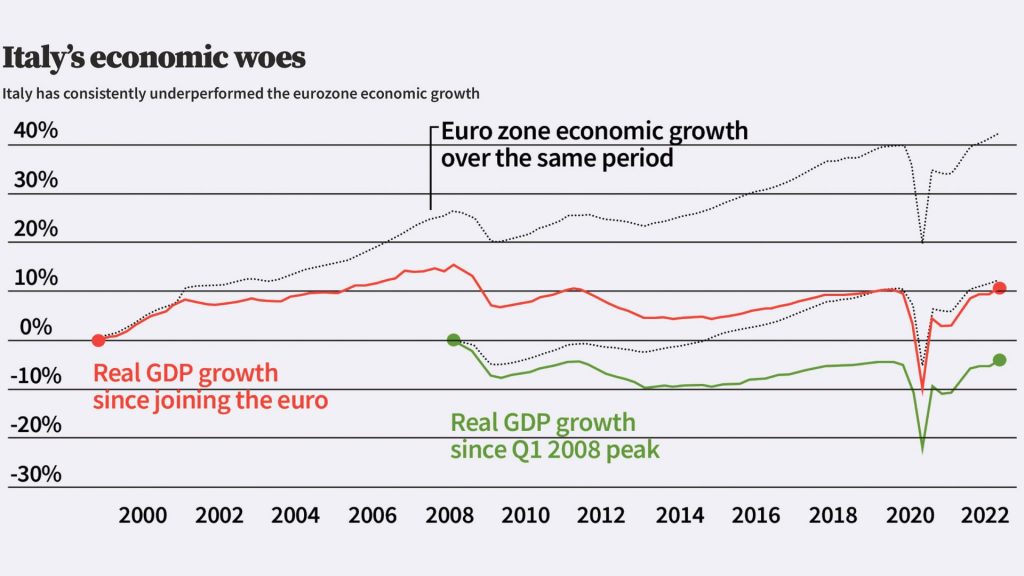
There’s a lakeside hotel and restaurant in the mountains near here and we’ve been going there for years. Earlier in the summer, the owners were telling us that they were struggling to break even and weren’t sure how long they’d be able to stay open. A few weeks ago – before the election – we stopped there hoping to have lunch and found the place closed and shuttered. I’ve heard similar stories from all over the country. Italy is a nation of small, family-owned businesses and any threat to this backbone of both the economy and society in general is a genuine crisis.
Voters were looking for someone to help them get out of this mess and many of them feel they’ve found that person in Giorgia Meloni. Like all populists, she has promised simple solutions to complicated problems, but she also stands out in a number of other ways. Most obviously she’s a woman, and Italy has never had a female leader before. She also comes from a working-class background, very different from that of the elite political leaders who dominate the other parties. Throughout the campaign, and during the nightly parade of politicians on the news and current affairs programmes, she always stood out. Her rivals and opponents appeared variously smug, insincere or just plain dull. In contrast, Meloni appeared serious, honest and trustworthy. And it seems people liked that.
The day of the election itself began with a raging storm that knocked out our electricity. Luckily it was just the trip switch, but it left me with a vague sense of unease. Later in the morning, during a brief sunny spell, I went out to check on my vegetable garden. On the way I passed the polling station, which was doing brisk business. I said hello to a few friends and acquaintances. Everyone looked very serious, but maybe that’s just how people are when they go to vote. As I passed the bar, I saw a neighbour who I know supports Meloni joking happily with the other customers.
But what, politically, is there to support? As far as I can see, Meloni’s policies are a mess of contradictions and wishful thinking. It doesn’t take in-depth analysis to see that reducing taxes while simultaneously lowering the retirement age is not going to end well. Do her supporters, laughing in the bars, really believe she can deliver what she promises?
The answer, according to a psychologist friend of mine, is probably not, but it hardly matters. What they want is a leader they can identify with, someone who embodies their own hopes and fears, an individual who can represent the spirit of the nation. The name of her party, Fratelli d’Italia (Brothers of Italy – borrowed from the title of the Italian national anthem) tells you quite a lot about her appeal. The party’s symbol, the tricolour flame, derives originally from the MSI, the postwar reincarnation of Mussolini’s banned fascist party. Which brings us to an unfortunate anniversary: October 29 is the 100th anniversary of Mussolini’s march on Rome and the beginning of fascist rule in Italy.
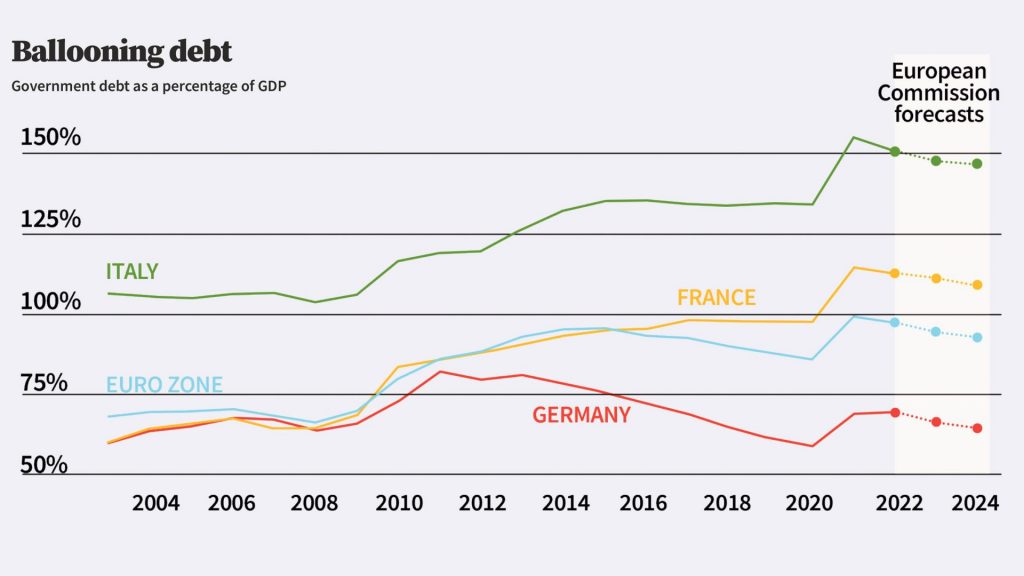
Back at home, the election night TV news was showing footage of the party leaders voting in their various home towns. They were all smiling and at least trying to appear confident, though in the case of Enrico Letta, former prime minister and now leader of the Democratic party, the attempt barely succeeded. Waiting for the exit poll, I cooked dinner for some Italian friends. My concern about the election result was briefly displaced by anxiety as to how my cooking would go down. Preparing food for Italians is a nerve-wracking experience.
The evening was light-hearted enough until the conversation turned inevitably to the election. Then there was general despondency as well as frustration and some anger at the way the centre left had mishandled the whole thing. There was admiration and enthusiasm for Giuseppe Conte, another former prime minister and now leader of the 5 Star party – and I have to admit that he looked the most effective and energetic of the anti-right wing leaders. Nevertheless, the majority view was that a vote for anyone other than Letta’s Democratic Party was a wasted vote. At 11pm the exit poll confirmed what everyone already knew and we went to bed knowing that Giorgia Meloni was going to be the next prime minister of Italy.
People assure me that Meloni is far from being a fascist or even a neo-fascist. She’s a right wing populist nationalist of a type very familiar these days throughout Europe and the rest of the world. And Italy is a very different country now from how it was 100 years ago. Back then the majority of Italians were poor. They had little to lose by making a leap in the dark.
Early the next morning I caught her acknowledgement speech. Meloni talked about pride and responsibility, and about the difficult times ahead. She ended by declaring that “Italy has chosen us and we will not betray her.” That’s a bold claim. Her right wing alliance received somewhat less than half the votes cast. An awful lot of Italians voted against her and she would do well to remember that.
The biggest fear most Italians have is of being unable to maintain their standard of living. Like other right wing politicians, Meloni is targeting immigration as one of the causes of Italy’s ills. While she has sought to soften her public stance relative to that of her ally, Matteo Salvini, leader of the Lega party, her insistence on linking immigration to crime and national security plays to the fears of many ordinary Italians who worry that their country is being overrun.
Ironically, Italy could barely function without large-scale immigration. Its low birth rate means it simply isn’t producing enough young people to replenish the workforce. I asked a friend about this phenomenon. Was it a reason to be worried about Italy’s future? He wasn’t so sure, but told me about his youngest daughter and her partner, who had told him that they weren’t interested in having children. They were more committed to maintaining a comfortable lifestyle than making the sacrifices involved in raising a family.
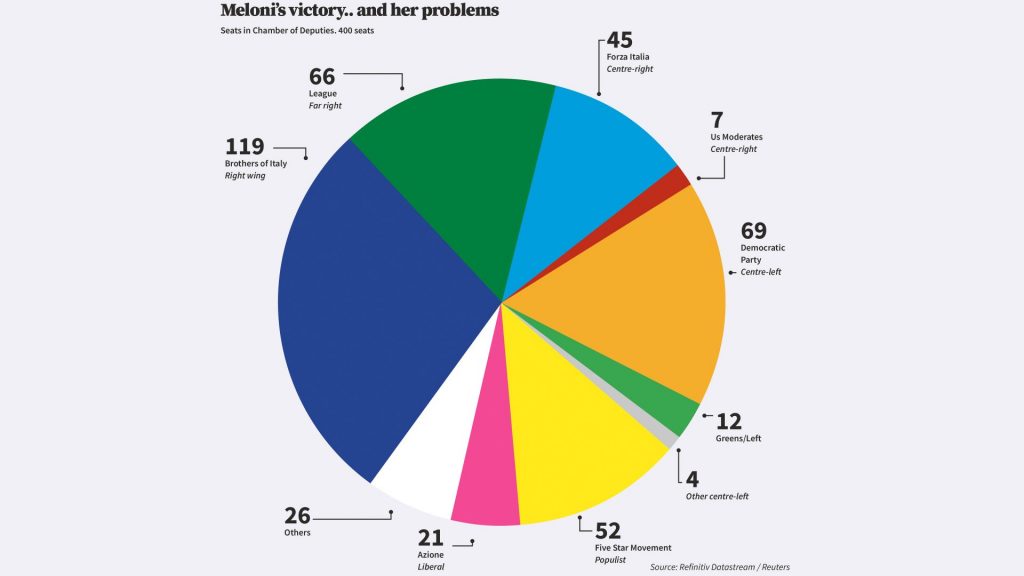
This complacent rebellion, deliberately choosing apathy over active commitment, also extends to politics. Voter turnout has fallen over the past 30 years from almost 90% to just over 70%. At this election, it was 64% and among those aged 18 to 25 the figure was well under 50%. People roll their eyes and tell me that, if only young people would just get out and vote, they could stop the right in its tracks.
The lack of engagement is widely recognised. On the TV news recently, I saw a clip of Conte, the leader of 5 Star, speaking at an election rally. Shirt-sleeved and impassioned, he was exhorting people to stop lying around in their underpants watching TV. Instead they should get out and make their voices heard, he said. But there was not really much buzz around this election. I’ve seen fewer posters and fewer people canvassing, and there has been less comment among neighbours than last time. My impression was that most people accepted long ago that Meloni was going to win.
As for the left, it seemed to run out of ideas and failed to promise anything positive. A vote for the Democratic Party was simply a vote to keep out the right, and that’s not a very inspiring message. After one livestreamed debate between Meloni and the Democratic Party leader Enrico Letta, almost all commentators agreed that she had won a comprehensive victory. Even the left wing Domani newspaper reported that, “Letta lost, unequivocally. He spent the whole debate, just as in the last few weeks, in fighting an imaginary Giorgia Meloni. The one of past excesses… not the institutional version of today.”
In fact, Letta virtually admitted defeat and urged undecided voters to vote for him anyway so as to deny the right the absolute majority that would allow them to change the constitution. Friends of mine told me they would be voting for Letta’s party, but without the least shred of enthusiasm. As one said to me, almost in despair: “We are voting negatively, simply in the hope of avoiding the worst.”
Letta’s post-election speech was sorrowful. He looked exhausted and crestfallen. He announced that he would not be standing again as leader and that it was time a new generation took over to lead the party into the future. Then came Conte, leader of the 5 Star party, looking tired but ebullient. His barnstorming performance had, against earlier predictions, halted a slide in support, and his party had come third with 15% of the vote. His strong showing, particularly in the south, may well have been the most important factor in denying the right an absolute majority.
Finally there were interviews with Salvini and a spokesman for Berlusconi. They looked as if they had won the lottery, which in effect they have – without Meloni they’d both be finished. It’s no secret that the three of them do not really like each other. They’ve been thrown together by necessity, but it will be interesting to see how things play out when the going begins to get tough.
The political argument in Italy has narrowed in recent years. All of the main parties promise to safeguard and improve healthcare, education and social welfare provision. The division is now around topics like the family, religion, gender politics, Europe and, of course, immigration.
Abortion will now become a contentious issue. Meloni has said that abolishing the 1978 law that legalised abortion is not on her agenda. But the example of the Marche region, where her party has been in power since 2020, shows that obstructive measures, combined with vocal and practical support for anti-abortion groups, can drastically erode women’s access to safe, legal abortions. Any nationwide move in that direction will provoke massive and well-organised popular opposition. Perhaps we will see a resurgence of the Sardines, the protest movement that rose to prominence during Salvini’s last brief spell in office.
The day after the election we watched a roundup of the international reaction. The response from Washington and Brussels was cautious optimism. The view was that Italy would remain a reliable member of both the western alliance and the EU, as Meloni has asserted. There were congratulatory messages from Viktor Orbán in Hungary and Mateusz Morawiecki in Poland. I’ve read articles which bracket a Meloni-led Italy with those two right wing populist regimes. It’s a mistaken comparison.
Both Hungary and Poland emerged from Soviet rule in the 1990s and have never really managed to throw off a tendency towards authoritarianism. Italy, on the other hand, has been a functioning democracy for nearly 80 years and has democratic traditions stretching further back to the period before fascism. It is an advanced, liberal, pluralistic society with strong, independent institutions. A democratically elected, albeit aggressively right wing leader, like Meloni, is simply not going to be able to change that.

